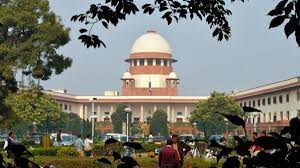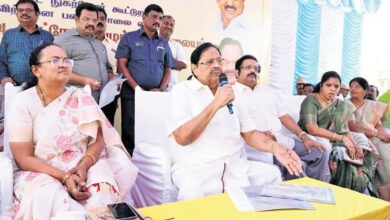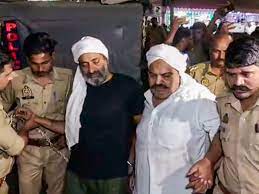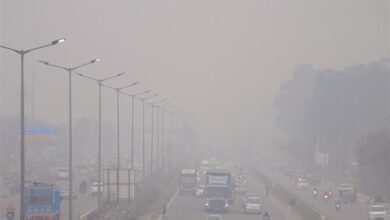According to Kapil Sibal at the Supreme Court, the Constitution saw Article 370 as permanent, hence a state cannot be turned into a union territory
Senior Advocate Kapil Sibal on Tuesday questioned the transformation of a state into a union territory (UT) during the third day of proceedings on appeals against the Supreme Court’s repeal of Article 370 F.
Sibal said that it was wrong for the decision to revoke Jammu and Kashmir’s special status and divide the state into the two UTs of J&K and Ladakh since it was made without the consent of the people.

Sibal further informed the Supreme Court that the Legislative Assembly cannot take the place of the Constituent Assembly under any circumstances. He also discussed with Chief Justice of India (CJI) DY Chandrachud whether Article 370 was transitory or permanent and how it may be changed.
A number of petitions contesting the repeal of Article 370 are being heard by a five-judge Supreme Court Constitution bench, led by Chief Justice Chandrachud. On August 5, 2019, the Narendra Modi administration divided Jammu and Kashmir into the two UTs of J&K and Ladakh and revoked the special status granted to the region under Article 370 of the Constitution. Justices Sanjay Kishan Kaul, Sanjiv Khanna, BR Gavai, and Surya Kant are also on the bench.
The Supreme Court requested answers to queries about the substance of Article 370 at the earlier sessions. It questioned whether it was a permanent or transitory component of the Constitution and if it was a part of the Basic Structure that could not be changed.
State cannot be changed into UT: Kapil Sibal
Kapil Sibal argued against the Modi administration’s repeal of Article 370 and questioned whether a state could be changed into a union territory (UT).
Sibal argued that although states may be divided into UTs, a state cannot be transformed into a UT in its entirety.
“Can the union declare a state a union territory at its discretion without consulting the individuals who would be impacted…How is a UT possible given this. A UT may be carved, but it does not permit the extinction of a state. According to Sibal, “If you can do it to one, you can do it to others and make it presidential form of government everywhere.”
Sibal said that such translation into UT is not textually permitted when CJI Chandrachud questioned it.
“No, you cannot do it,” Sibal said. From a State, you have produced two UTs. Which power is that? There are other categories of what they’ve done that don’t fit into any of them. How is it even conceivable?
Sibal said that the decision was made without the input of the J&K population.
“Where is Jammu and Kashmir’s official voice? Have they been heard in the recent four years? Through an executive action, you eliminate consent. You reject their points of view. What’s the situation? Sibal, according to Bar & Bench, stated.
No executive act may convert the state assembly to the constituent assembly: Sibal
Sibal stated that Article 370 served as the foundation for the constitutional relationship between J&K and India and could not be altered.
Sibal said that two unlawful presidential directives issued in 2019 altered this connection.
Sibal contended that Article 370 established and could not be amended a constitutional connection between India and Jammu & Kashmir. However, the Union ended this partnership in 2019 according to two Presidential Orders. An executive order was made in this case.He then called the Court’s attention to Clause 2(d) [of the presidential order], which changed “Constituent Assembly” to “Legislative Assembly,” so enabling Parliament to propose the repeal of Article 370, according to the Supreme Court Observer.
Sibal, who was clearly upset, said, “What authority does the President have to do this?” and described the presidential decree as an exercise of executive rather than a political authority that was acknowledged by the Constitution, according to SC Observer.
Article 370 was adopted as permanent by the Constitution: Sibal
CJI Chandrachud had questioned Sibal on the permanence of Article 370 in the Constitution.
In response, Sibal said that nothing inconsistent with Article 370 had ever been done in India, demonstrating that the Constitution had embraced the clause as permanent.
In addition, Chandrachud said that since Article 368 of the Constitution permits amendments to articles, then Article 370 may also be changed.
“Article 370 will also be covered if we believe that Article 368 is utilized to change all articles. The claim that there is no legal authority to alter may thus only be moral in nature, not legal, according to Chandrachud, as quoted by Bar & Bench.
The substance of Article 370 has previously been discussed during proceedings as well, with the Apex Court questioning the petitioner whether the clause was a permanent component of the Constitution’s Basic Structure and could not be changed.
According to Bar & Bench, “The Court wanted to discover if the Article was intended to be a permanent provision simply because the Jammu and Kashmir (J&K) Constituent Assembly, which had the authority to suggest the deletion of the clause, ceased to exist in 1957. If it is agreed that Article 370 of the Constitution became permanent when the constituent assembly of Jammu and Kashmir was dissolved in 1957, the top court had questioned if the Article would become a part of the fundamental structure of the Constitution at the last hearing.







